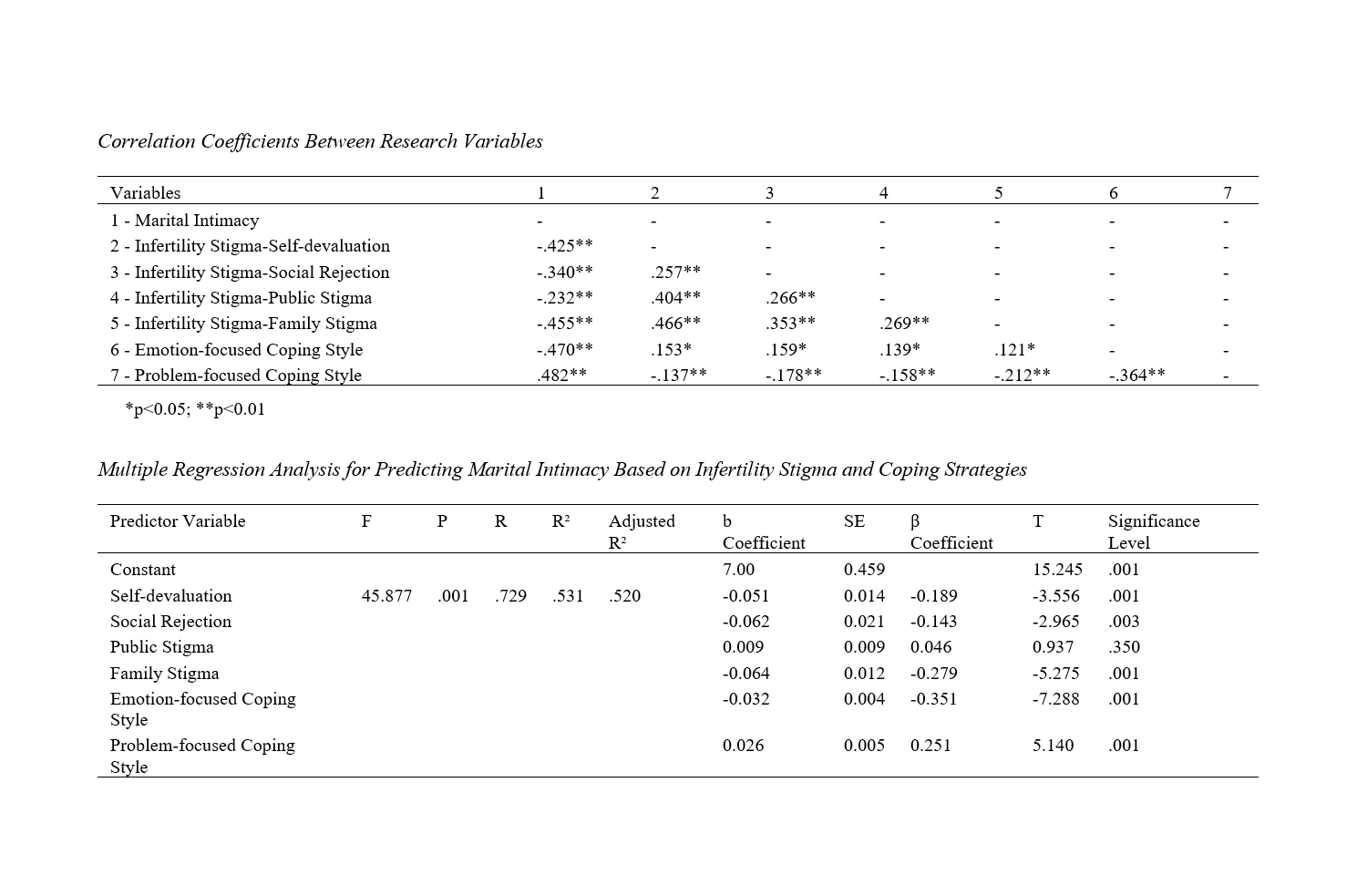Predicting Marital Intimacy Based on Infertility Stigma and Coping Strategies in Infertile Women
Keywords:
Marital Intimacy, Infertility Stigma, Coping Strategies, Infertile WomenAbstract
Objective: Infertility is not merely a medical condition affecting women but a biopsychosocial health issue that encompasses lower quality of life, psychiatric disorders, and even marital conflicts. The aim of this study was to predict marital intimacy based on infertility stigma and coping strategies in infertile women.
Method: This applied research was descriptive-correlational in nature. The population included all infertile women in Tehran in the year 2020. From this group, 250 participants were selected using purposive sampling. The participants were assessed using the Thompson and Walker (1983) Marital Intimacy Scale, Fu’s (2014) Perceived Infertility Stigma Scale, and Folkman and Lazarus’s (1985) Coping Strategies Scale. Data were analyzed using SPSS software, version 23.
Findings: Data analysis revealed that infertility stigma and coping strategies significantly predict marital intimacy in infertile women at the 0.01 level (p < .01, F(6, 249) = 45.877). Infertility stigma and coping strategies explained 53.1% of the variance in marital intimacy. The t-tests for significance in regression for self-devaluation (β = -.189, p = .001), social rejection (β = -.143, p = .003), family shame (β = -.279, p = .001), emotion-focused coping style (β = .351, p = .001), and problem-focused coping style (β = .251, p = .001) were significant at the level below .01. Among the sub-scales of infertility stigma, family shame and among the coping strategies, emotion-focused coping style had a more significant unique contribution in predicting marital intimacy.
Conclusion: Infertility stigma and coping strategies can be used to predict marital intimacy among infertile women.
Downloads

Downloads
Additional Files
Published
Issue
Section
License

This work is licensed under a Creative Commons Attribution-NonCommercial 4.0 International License.




















